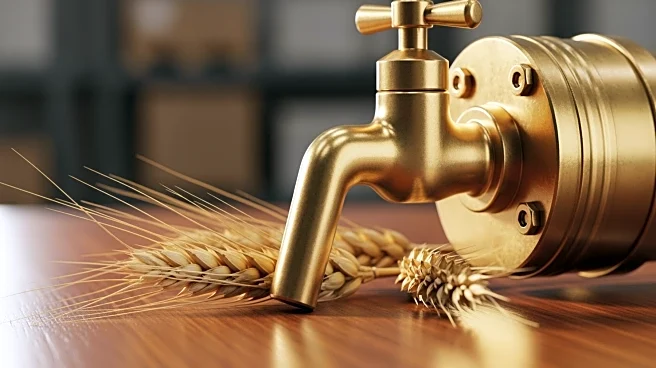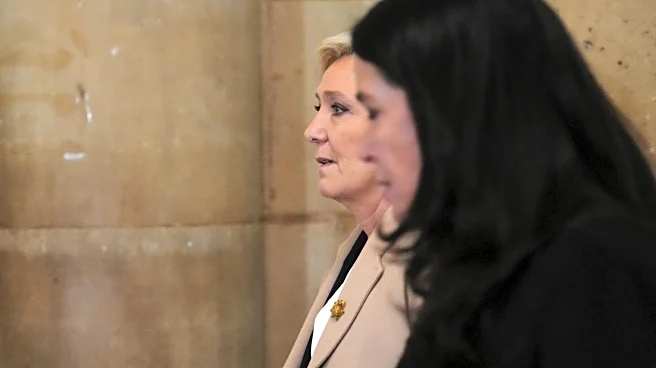What's Happening?
The Bureau of Customs (BOC) in the Philippines is intensifying efforts to increase revenue collection from oil and agricultural imports to offset losses from halted rice imports. BOC Commissioner Ariel Nepomuceno stated that the agency is targeting oil smuggling
to compensate for the revenue shortfall caused by the rice import ban, which was extended to protect local farmers during peak harvest season. The BOC aims to meet its revenue target of P958.7 billion, despite challenges posed by the rice import halt and other factors affecting collection efficiency.
Why It's Important?
The focus on oil and agriculture highlights the BOC's strategic approach to maintaining revenue streams amidst policy changes. Oil imports, accounting for a significant portion of total revenues, are crucial for meeting the agency's financial targets. The crackdown on smuggling is essential for ensuring fair trade practices and maximizing revenue collection. The situation underscores the broader economic challenges faced by the Philippines, as it balances domestic agricultural interests with revenue needs.
What's Next?
The BOC's efforts to enhance revenue collection will continue, with a focus on improving efficiency in oil and agricultural imports. The agency's success in meeting its targets will depend on its ability to effectively combat smuggling and adapt to changing import policies. The outcomes may influence future trade and economic policies in the Philippines, as the government seeks to balance revenue generation with support for local industries.
Beyond the Headlines
The situation reflects broader economic dynamics in the Philippines, as the government navigates challenges related to trade, agriculture, and revenue collection. The emphasis on oil and agriculture highlights the importance of these sectors in the country's economic strategy. The developments may also impact international trade relations, as the Philippines adjusts its import policies and enforcement practices.

















